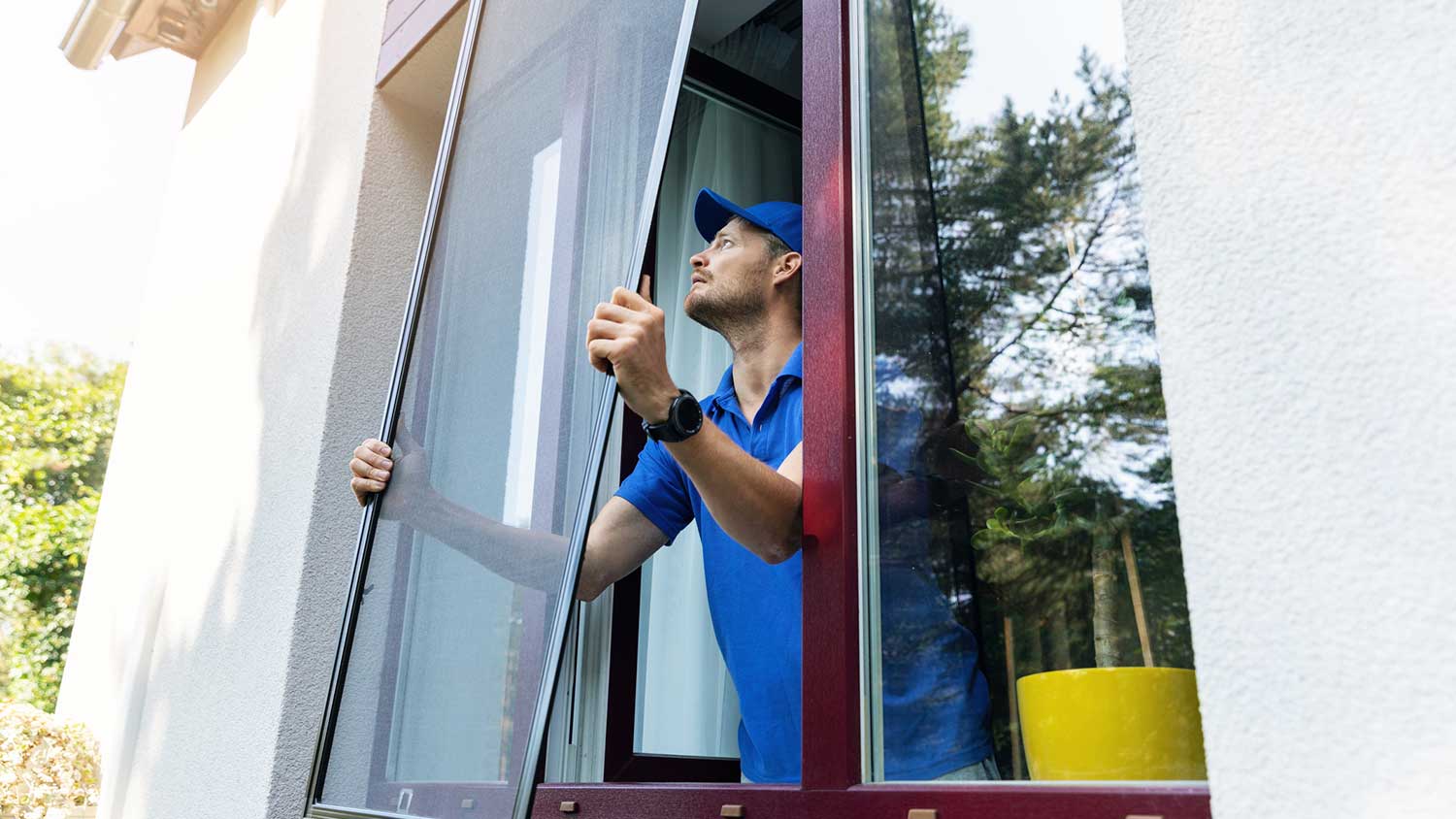
Discover average window screen replacement costs, key price factors, and ways to save and budget for your window screen project.
Here’s why you don’t necessarily need to use window screens year-round


Removing your window screens can allow more natural sunlight into your home.
Forgoing screens can also boost your home’s insulation, thereby lowering energy bills.
If you live in a location with lots of insects or critters, window screens might be necessary.
Many of us have been there before, asking, “Do I need screens on my windows, really?” Simply put, the choice to install window screens or go without them is all up to personal preference, the climate you live in, and your priorities. If, for instance, you have a cat that loves to wiggle her way through any open crack in the house to get outside and bird-watch, you might want to leave the screens in. On the flip side, there are plenty of reasons to remove them—for good or just for a season.
Did you know Europeans largely do not use screens? Screens definitely aren’t necessary—and there are some benefits to removing them.

Window screens can block up to 30% of the sun’s natural light. This is especially true if your screens tend to collect a lot of dust and debris from outside. In addition to being a mood booster, sunlight can help keep your home warm inside during the colder months of the year, saving you money on your heating bill.
Window screens create another place for snow and ice to accumulate, which, over time, can cause damage to the screens and to the window frame. To prevent this, you could remove the screens in the wintertime, though some screens cannot be removed. Talk to a local window screen expert to understand all your options.
As mentioned, windows without screens let in more natural sunlight and, thus, more heat. This helps to better warm your home during the winter months, which may lead to lower heating costs on your utility bill.
If you’re trying to sell your home, your real estate agent might recommend cleaning, replacing, or getting rid of your window screens altogether. Screens accumulate a lot of dirt and dust, which can be seen from the outside, only remedied by the sight of a clear pane of glass revealing a spic-and-span, well-decorated house.
You don’t need to clean what doesn’t exist. Not to get too philosophical, but it’s true—if you don’t use window screens, you don’t need to worry about cleaning and repairing them over the years.

Despite the pros of opting out of window screens, there are valid reasons most homes have them.
The main function of screens is to keep unwanted pests—everything from mosquitoes to raccoons—out while allowing for fresh air to keep coming inside. That said, if you live in a colder place, you might not have your windows open in the wintertime very much at all and could opt to remove the screens for all the reasons listed above while placing the screens back on the windows during the summer when a breeze will be essential.
If having squeaky-clean windows is a priority, you might want to keep your screens in place. You’ve probably noticed that screens can get really, really dirty. That’s because they act as the shield between outside grime and your windows, so removing them means there is no barrier keeping that dirt at bay. Without screens, you’ll likely find yourself cleaning your windows more frequently.
A screen gives your home an extra layer of protection against all sorts of objects, like a falling tree branch during a storm or a baseball your neighbor’s kid threw in the wrong direction. Even if there is resulting damage to your window, the screen will likely lessen it. And considering that the average window replacement cost is $280 per window (not including installation), a screen might make you feel a bit more at ease.
You don’t necessarily have to choose between having screens or not having them, as there are certain types of window screens that allow for both options.
The most common type of screen you’ll find in homes, a fixed screen sits in front of the window frame and can be popped in or out for cleaning or removal.
Rollaway or retractable screens allow you to roll up the screen when you don’t want or need it, giving you the flexibility of having screened or screen-free windows whenever you wish. Some of these models include a remote so you can open or close your screens with ease.
Many hardware or big box stores sell window screens with frames in standard sizes; a double-hung window width ranges from 24 to 48 inches, and its height from 36 to 72 inches. Companies make standard-sized screens and also custom screen sizes for unique shapes. So, how much are window screens? On average, around $300.
Taylor Freitas contributed to this piece.
From average costs to expert advice, get all the answers you need to get your job done.

Discover average window screen replacement costs, key price factors, and ways to save and budget for your window screen project.

Need to remove your dirty, worn-out window screen? Learn how with our easy-to-follow steps for common window types—double-hung, sliding, and more.